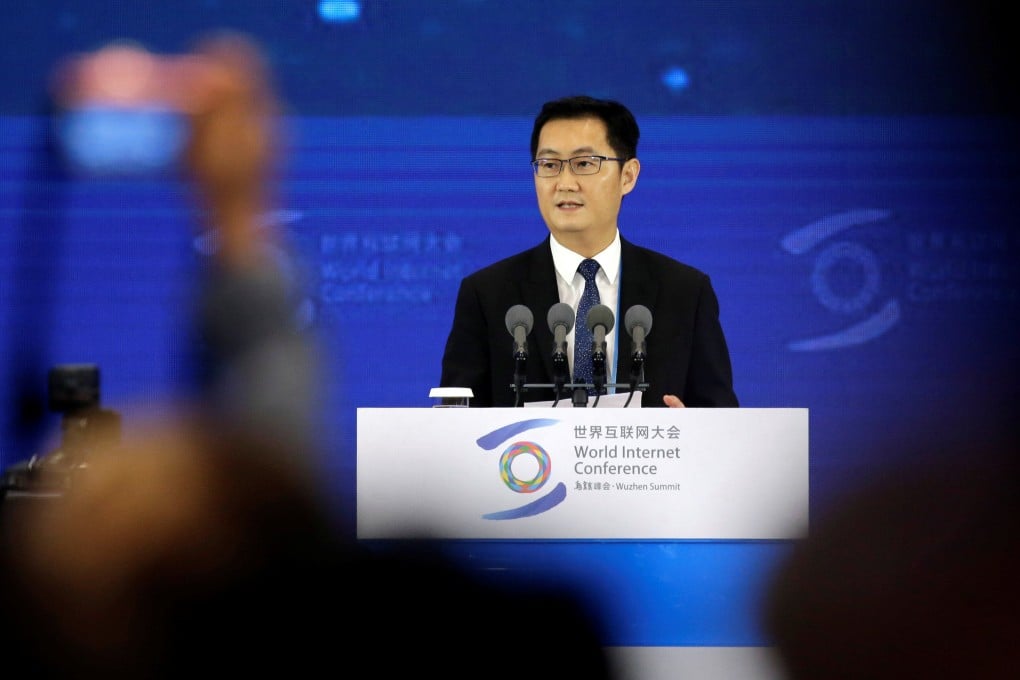Advertisement
Tencent CEO Pony Ma sparks fresh online discussion about China’s economic pain after sharing viral social media article
- Pony Ma endorsed to his WeChat contacts an online essay that paints a bleak picture of China’s economy under Beijing’s dynamic zero-Covid-19 policy
- That social media post reflected an uncharacteristic step for the Tencent founder, who has kept a low profile in recent years
Reading Time:3 minutes
Why you can trust SCMP
21

Tencent Holdings founder, chairman and chief executive Pony Ma Huateng has sparked fresh online discussion about economic difficulties under Beijing’s dynamic zero-Covid-19 policy, following his endorsement on Saturday of a viral article that touched on the Chinese technology industry’s current struggles.
The 50-year-old billionaire, who has kept a low profile in recent years, shared the online article entitled “Nobody cares about the economy except for Hu Xijin” to his contacts on WeChat, Tencent’s ubiquitous and multipurpose social media app.
The essay written by independent online commentator Zhang Mingyang, who first published it via the WeChat account called Dujiaojing Workshop, paints a bleak economic picture of China amid the government’s implementation of strict Covid-19 control measures. Hu, the outspoken former editor-in-chief of nationalist tabloid Global Times, was referenced because of his appeal for concern about the economic impact of the government’s zero-Covid-19 strategy.
Ma described as “truly vivid” a paragraph from the article that lambasts those who doubt the value of services provided by China’s tech sector during these trying times.

“Some netizens believe enterprises can go bankrupt, but can’t lay off people, and businesses can go bust, but can’t demand overtime,” the article said. “They relate China’s economy solely to chips and so-called hardcore tech, but disregard food, clothing, transport and housing [which they see] as too vulgar or insignificant [to be concerned about].”
Advertisement
Select Voice
Choose your listening speed
Get through articles 2x faster
1.25x
250 WPM
Slow
Average
Fast
1.25x